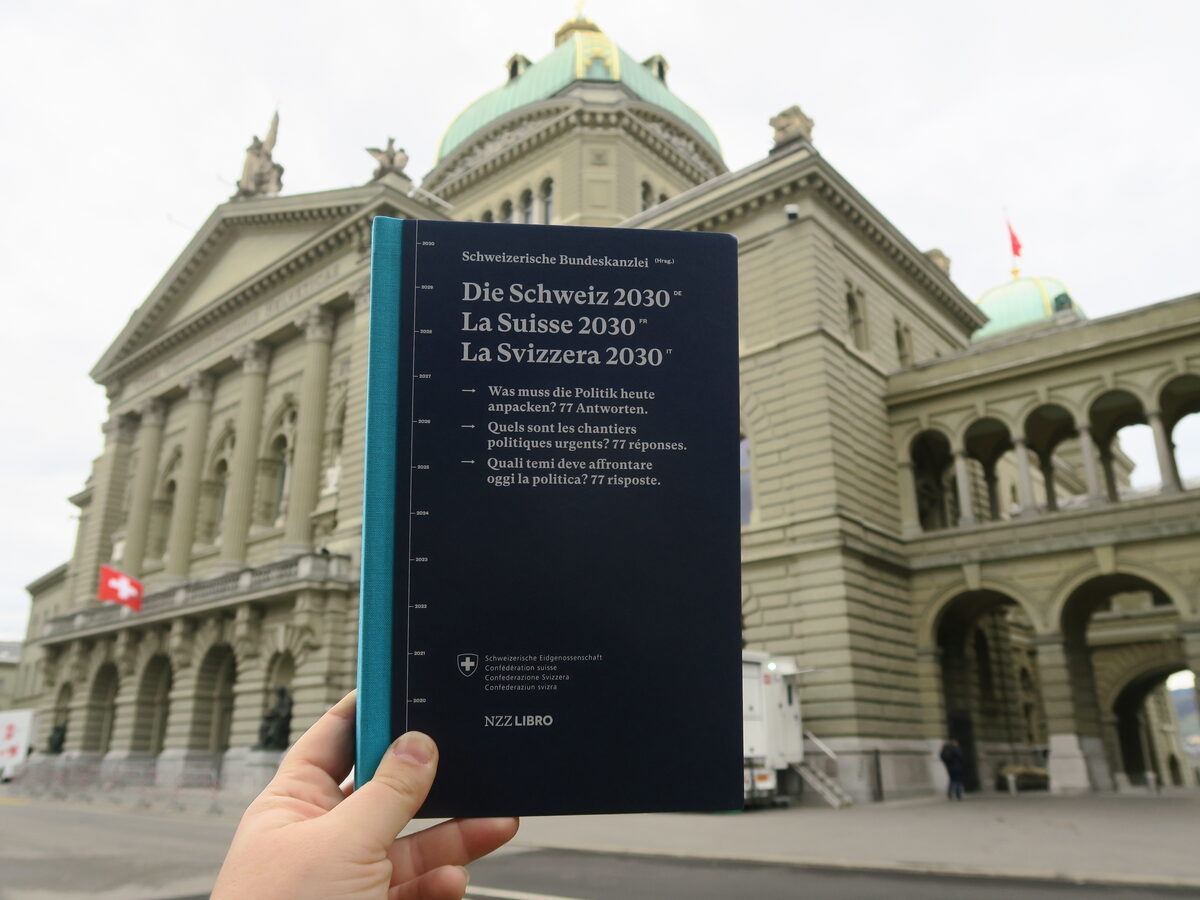"In demand": Switzerland 2030


As authors, you have chosen selected personalities from various sectors and parts of the country. According to which criteria did you choose the authorship?
Ursula Eggenberger: We wanted to receive authors' contributions that give an opinion on how they see the future and what direction politics should take. For proposals on authorship, the Federal Chancellery consulted the various units of the Federal Administration and the General Secretariats. We asked around 110 people. 77 authors have agreed to contribute to the book. They include selected personalities from the business and research communities, as well as artists and people from civil society. From the authors' point of view, the book provides answers to the question of which topics should be tackled today in order to prepare Switzerland for the year 2030.
In the introduction "What Political Switzerland 2030 will (perhaps) be withheld from political Switzerland today", Federal Chancellor Walter Thurnherr describes how relations with other countries are changing and the increasing pressure that technological innovations are exerting on politics. He also writes that it is an empirically proven thesis that the future will be different than expected. Why did you nevertheless dare to make a forecast?
The future, as they say, does not care about forecasts. The book therefore does not claim to make forecasts. However, it was important for us to think about what is conceivable on the basis of today's state of knowledge and to pay particular attention to the challenges facing Switzerland, for example in the areas of ecology, migration, digitization and security.
The feedback we receive is intended to encourage us to question what has been taken for granted and to rethink what has been suppressed or little known. Can you give a few examples here?
In the book, for example, the topics of digitization, technologization and automation are treated prominently, from very different perspectives: What does this mean for legislation? What is the role of the state in a digitised future? What influence does technologisation have on society and the economy? What opportunities does digitisation offer in the health sector? Each topic has complex effects - the book makes us think about them.
Are you still looking for a Christmas present? Or do you want to read "Switzerland 2030" yourself? We are giving away a copy among all e-mail submissions until 20.12.2018 to newsletter@communicators.ch.
